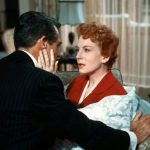 Our World
Our World  Our World
Our World  Crime
Crime 10 Dark Details of the “Bodies in the Barrels” Murders
 Animals
Animals The Animal Kingdom’s 10 Greatest Dance Moves
 Movies and TV
Movies and TV 10 Box Office Bombs That We Should Have Predicted in 2025
 History
History 10 Extreme Laws That Tried to Engineer Society
 History
History 10 “Modern” Problems with Surprising Historical Analogs
 Health
Health 10 Everyday Activities That Secretly Alter Consciousness
 History
History Top 10 Historical Disasters Caused by Someone Calling in Sick
 Animals
Animals 10 New Shark Secrets That Recently Dropped
 Movies and TV
Movies and TV 10 Forgotten Realities of Early Live Television Broadcasts
 Our World
Our World 10 Places with Geological Features That Shouldn’t Exist
 Crime
Crime 10 Dark Details of the “Bodies in the Barrels” Murders
 Animals
Animals The Animal Kingdom’s 10 Greatest Dance Moves
Who's Behind Listverse?

Jamie Frater
Head Editor
Jamie founded Listverse due to an insatiable desire to share fascinating, obscure, and bizarre facts. He has been a guest speaker on numerous national radio and television stations and is a five time published author.
More About Us Movies and TV
Movies and TV 10 Box Office Bombs That We Should Have Predicted in 2025
 History
History 10 Extreme Laws That Tried to Engineer Society
 History
History 10 “Modern” Problems with Surprising Historical Analogs
 Health
Health 10 Everyday Activities That Secretly Alter Consciousness
 History
History Top 10 Historical Disasters Caused by Someone Calling in Sick
 Animals
Animals 10 New Shark Secrets That Recently Dropped
 Movies and TV
Movies and TV 10 Forgotten Realities of Early Live Television Broadcasts
10 of the Most Generation Defining Films
Since the early days of filmmaking, it seems every generation has certain movies that strongly reflect whatever sets them apart from their parents and grandparents. Whether it be fashion, social behavior, attitude toward life, or simply a refusal to conform in general, motion pictures that successfully capture what makes a generation unique often become nostalgic favorites or even highly lauded works of art. These 10 films are among the most generation-defining pictures ever made.
Related: 10 Female Film Pioneers Who Shaped the Movies
10 A Fool There Was (1915)
Before there were flappers, there were vamps. Short for vampire and inspired by the Edvard Munch painting Love and Pain, vamp was the moniker for seductive, strong-willed women during the early 20th century, who became enormously popular on screen, as portrayed by actress Theda Bara.
A theory that took hold at the time that sexually uninhibited females weakened the men who were romantically involved with them caused society to be leery of so-called “vamps” while also being fascinated by them. These femme fatales were a bridge between the virtuous but repressed Victorian-age heroines and the carefree protagonists who appeared in the following decade when audiences were more comfortable with the idea of women as sexual beings.
The 1915 silent melodrama A Fool There Was chronicles the undoing of a devoted family man who becomes enamored with a sexually voracious and conniving woman. Referred to only as The Vampire, she manipulates him into leaving his wife and child in order to run away with her. Then she proceeds to drain him of his potency and ruin him as she has done with previous lovers. It is a cautionary tale, which both fed this World War I generation’s appetite for stories about scandalous women and satisfied the public’s urge to vilify them.[1]
9 It (1927)
While there were many movies about young people in the roaring 1920s, the one that most famously captures the free-spirited, unconventional attitude of those who came of age during this wild, fun-loving decade is the 1927 romantic comedy It. Clara Bow, an actress who epitomized the uninhibited flapper in her personal life—and on-screen—stars as Betty Lou Spence, a sales clerk who sets her sights on her new boss, an attractive playboy, Cyrus Waltham Jr. (Antonio Moreno).
In this classic silent film, based on Elinor Glyn’s novel, Betty Lou is struck by Cyrus’s irresistible magnetism, which she calls “it.” However, once he hears a false rumor about her mothering an illegitimate baby, Cyrus has second thoughts about her. The liberated, outgoing Betty Lou doesn’t give up easily. She decides to play up her own considerable sex appeal to win over the man of her dreams. After starring in this provocative film, Clara Bow became known as the first “It Girl.”[2]
8 The Best Years of Our Lives (1946)
World War II-themed films were very popular during and soon after the war, and many of these pictures have become classics. One of this era’s more personal war movies is the William Wyler-directed 1946 drama The Best Years of Our Lives, which focuses on what happens to a group of soldiers and the women they love when the men return home. This poignant film draws attention to the challenges vets faced when re-adjusting to civilian life. It features a star-studded cast that includes Myrna Loy, Dana Andrews, Teresa Wright, Virginia Mayo, and Fredric March.
Andrews’s character, Fred Derry, is a war hero suffering from nightmares who is disappointed to return to his dull, low-paying job at a soda counter and his troubled marriage. Non-actor Harold Russell is impressive in his portrayal of Homer Parrish, a serviceman struggling to cope with the loss of his hands and the decision of whether or not to break off his engagement. The character of married banker Al Stevenson (Fredric March) is disillusioned after returning to his comfortable, upper-class life and displays alcoholic tendencies.
Since the war had such a big impact on those who came of age during this era, often termed “The Greatest Generation,” this movie was very relevant at the time and has continued to be popular within its genre.[3]
7 Rebel Without a Cause (1955)
There’s really no contest when it comes to the film that defines the non-conformist rock ‘n’ roll generation of the 1950s. The iconic 1955 drama Rebel Without a Cause stars James Dean as sensitive juvenile delinquent Jim Stark, one of three troubled teens who become friends. Not only did the youth of this particular era identify with the groundbreaking movie, but it has also resonated with teens in subsequent generations.
Directed by the renowned Nicholas Ray, the picture co-stars Natalie Wood as Judy, which marked her transition from wholesome children’s parts to complex, young adult roles. Sal Mineo memorably plays the insecure, childlike Plato Crawford. According to a TCM article by Felicia Feaster and Scott McGee, Rebel Without a Cause is among “the archetypal films of teenage angst, an enduring hit with successive generations and a harbinger of things to come in the tumultuous Sixties.”[4]
6 The Graduate (1967)
Of all the films made during the 1960s depicting the unconventional youth and the cultural changes that were rapidly taking place, The Graduate likely resonates most with the Baby Boomer Generation. This 1967 satire, directed by Mike Nichols, stars Dustin Hoffman in his breakthrough film role.
Hoffman plays confused, young college grad Ben Braddock, who is seduced by the predatory Mrs. Robinson, brilliantly played by Anne Bancroft. The naive Ben is used by the jaded older woman, who only wants a fling. However, everyone is shocked when Ben ends up running away with the Robinsons’ daughter, Elaine (Katharine Ross), in the film’s iconic finale.
The disillusionment of this generation was strikingly shown in the story itself, as well as the widespread desire for real changes in society. In an article for the University of Oxford newspaper Cherwell, Sebastian Hall says, “The Graduate portrays in stark terms the removal from the moral compass of previous decades.”[5]
5 Saturday Night Fever (1977)
The 1977 romantic music drama Saturday Night Fever defined many things about American youth at the time. Obviously, the popularity of disco is reflected in the story of 19-year-old Brooklynite Tony Manero (John Travolta), who finds a much-needed escape by dancing at a local disco where he regularly wows the crowd. During an era when the American dream seemed out of reach for many, Tony represented a large segment of young people who felt lost and confused about their future. They also lacked the focus of a big cause or movement to unite them, unlike their revolutionary hippie predecessors or the WWII generation.
As a group, 1970s youth embraced the exciting nightlife of clubs and discos where they could lose themselves in the music and potentially shine on the dancefloor. The film also stands out for trendy fashion, especially Tony’s white bell-bottom suit, which is well remembered from its poster and the cover of its hugely popular Bee Gees-dominated soundtrack. The sight of Travolta striking a dance pose in this now-famous suit is one of the most enduring pop culture images from the 1970s.[6]
4 Ferris Bueller’s Day Off (1986)
Not only does the comedy satire Ferris Bueller’s Day Off reflect the experiences of those who came of age during the 1980s, but according to LAist, it also “helped define the decade.” Brat pack movies of this era, such as The Breakfast Club, The Outsiders, St. Elmo’s Fire, and others played a big part in shaping pop culture during the 1980s.
However, this 1986 John Hughes classic, about cocky teen Ferris Bueller (Matthew Broderick) who skips school and the subsequent mischief he and his friends get into on a trip to Chicago, is also very effective in capturing the laid-back, live-in-the-moment attitude of a generation who grew up during this flashy, materialistic decade. Co-starring Jennifer Grey, Alan Ruck, and Mia Sara, Ferris Bueller’s Day Off is one of Hughes’s most popular films and has become a staple of 1980s cinema.[7]
3 Reality Bites (1994)
For a generation that is not easily defined, hence the label “Generation X,” this group of people born between 1965 and 1980 was the subject of a surprising number of movies. A lot of young adult-themed films in the 1990s attempted to define or at least explore the lives of this demographic. Reality Bites stands out for successfully reflecting the frustrations, attitudes, and challenges of the elusive Gen Xers and for underscoring their determination to not “sell out” as they felt their predecessors had.
Much of the film’s authenticity is undoubtedly due to it being written by Helen Childress, in her 20s at the time, who gleaned inspiration from her own life. The story revolves around four friends trying to navigate their way through adulthood, each with their own personal or career challenges. One of them, Lelaina (Winona Ryder), a recent college grad who has just been fired as a production assistant on a morning show, decides to make a documentary about her friends and what they are going through.
The movie was directed by Ben Stiller, who also co-stars as the conservative Michael, one of the two very different guys that Lelaina must choose between, the other being the irresponsible Troy (Ethan Hawke). Janeane Garofalo plays the promiscuous Vickie, who fears she may have contracted HIV. Steve Zahn portrays Sammy, a gay man reluctant to come out to his parents.
Despite its vivid portrait of this one generation, Reality Bites still manages to resonate with young people decades after its release. According to an article in the Conversation: “The themes of the film are surprisingly relevant given the generational differences between audiences of the early ’90s and today.”[8]
2 The Social Network (2010)
It may be possible for a film to define millennials, who do not have technology at their center, but including tech, especially the internet, as a major theme definitely helps. This generation, born between the early 1980s and the mid-1990s, grew up as the internet was being developed and came of age during the rise of social media. The 2010 hit film The Social Network is about one of them, social media pioneer Mark Zuckerberg, who started Facebook when he was a 19-year-old Harvard undergrad.
Based on the book The Accidental Billionaire: The Founding of Facebook and directed by David Fincher, the loose biopic stars Jesse Eisenberg as Zuckerberg, who perceives a need among his fellow students for a social networking platform, leading him to found what would become known as Facebook. We also see the downside when Zuckerberg is sued by co-founder Eduardo Saverin (Andrew Garfield) and others involved in the company’s early days.
The Social Network is frequently included among movies that best reflect the coming-of-age and young adulthood of millennials. According to Joshua Stecker’s 2010 review for the magazine Script, this biographical drama “is a generation-defining film, on par with the likes of The Breakfast Club, Clerks, and American Graffiti; films that captured the collective consciousness of the college generation of its time.”[9]
1 Eighth Grade (2018)
One of the biggest challenges Generation Z has had so far is establishing meaningful connections and developing social skills in the digital age. While people of all ages have sometimes struggled with maintaining personal relationships since the technology revolution began to change the world at the end of the last century, Gen Z has been most affected.
Bo Burnham’s acclaimed 2018 dramedy Eighth Grade is a powerful film focusing on growing up during the digital age and the huge impact social media has had on this particular group’s transition to adulthood. Elsie Fisher stars as socially awkward teen Kayla Day, who is trying to get through the final week of eighth grade, in this enlightening movie, which has been praised for its authenticity in portraying the realities of Gen Z’s unique coming-of-age experiences.[10]








